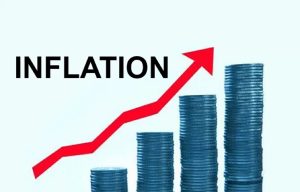On Friday, Moody’s, a worldwide rating agency, revealed on its website that the nation’s rising inflation is putting strain on government spending and increasing the likelihood of societal unrest.
Naija News reports that the agency revised its assessment of Nigeria, citing potential improvement in the nation’s external and fiscal positions as a result of recent reform initiatives, from stable to positive.
However, it said that Nigeria’s weak external and fiscal positions are reflected in the confirmation of its Caa1 grade.
Moody’s assigns nations and companies a credit rating, Caa1, to help investors make decisions.
The rating agency however expressed concern that high inflation is straining government interest and primary spending.
“In Nigeria’s challenging economic and social environment characterised by widespread poverty and social inequalities, social unrest due to worsening inflation could yet derail or reverse the reforms,” the rating agency said.
It added that the first stage in resolving the nation’s foreign exchange shortages and assisting with its external re-balancing is the unification of the foreign exchange windows and the depreciation of the naira.
The rating agency claimed that the country’s fiscal and external situations may be improved, which would raise its credit rating if the oil subsidies were removed along with other policy adjustments and the attempt at unification.
It stated that the depreciation of the naira, which has amounted to 42% versus the US dollar since the start of the year, along with the increase in gasoline prices as a result of the subsidy being removed, caused inflation to reach 27% in October.
Moody’s projected that the economy will eventually benefit from the removal of fuel subsidies and the liberalization of foreign exchange.
It claimed that the FX reform will lessen economic distortions that have discouraged foreign investment and created chances for arbitrage, as well as help better meet the demand for foreign exchange.
The rating agency said, “It also supports the country’s balance of payments, both above (import compression) and below (foreign investment) the line of the current account.
“In the meantime, Moody’s estimates that the naira’s devaluation has limited negative impact on government finances. The negative effect on debt, 37 per cent of which is denominated in foreign currency, is partly offset by higher local currency-equivalent revenue from oil proceeds.”
The post High Inflation Raises Social Risk In Nigeria – Moody Reveals appeared first on Naija News.



